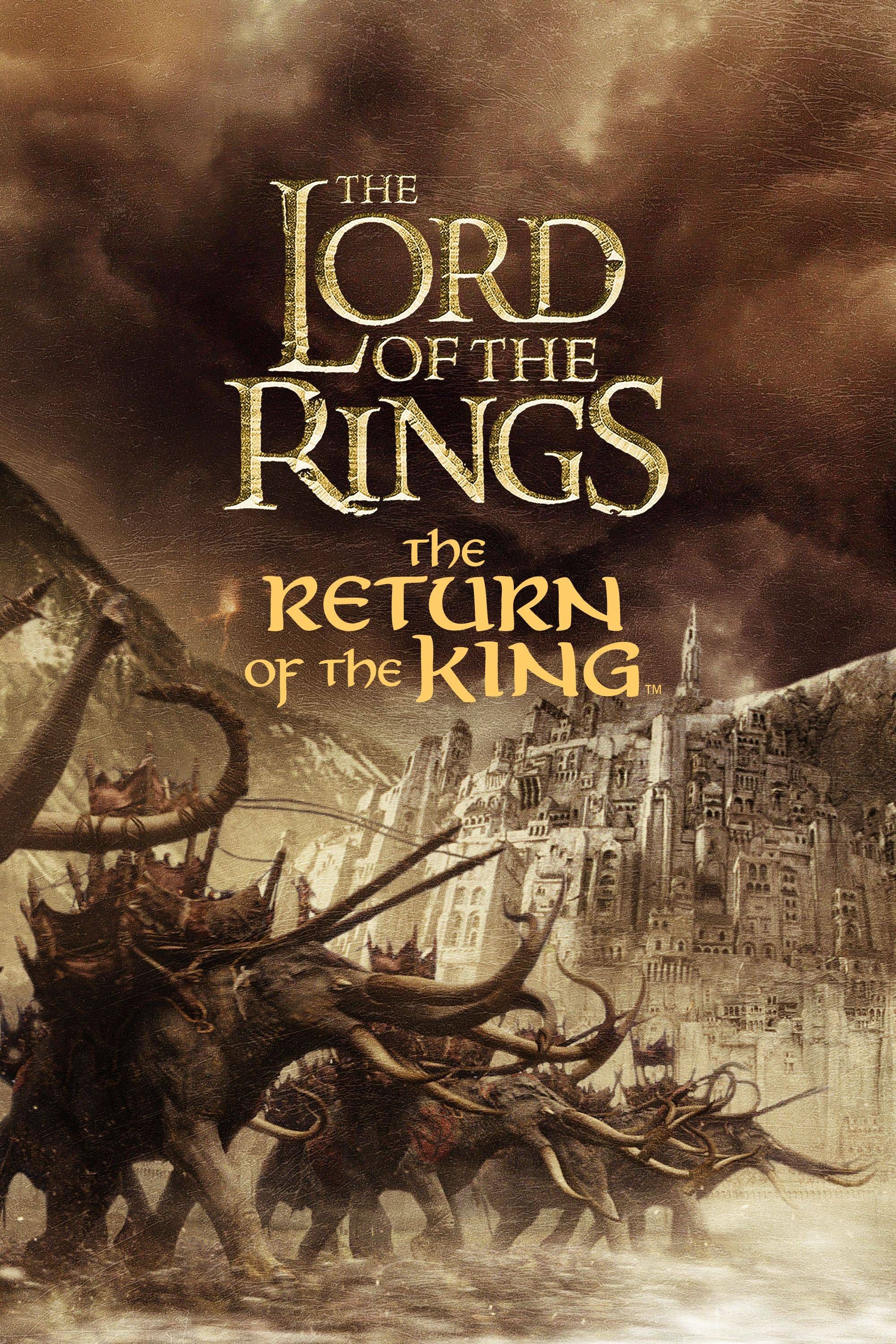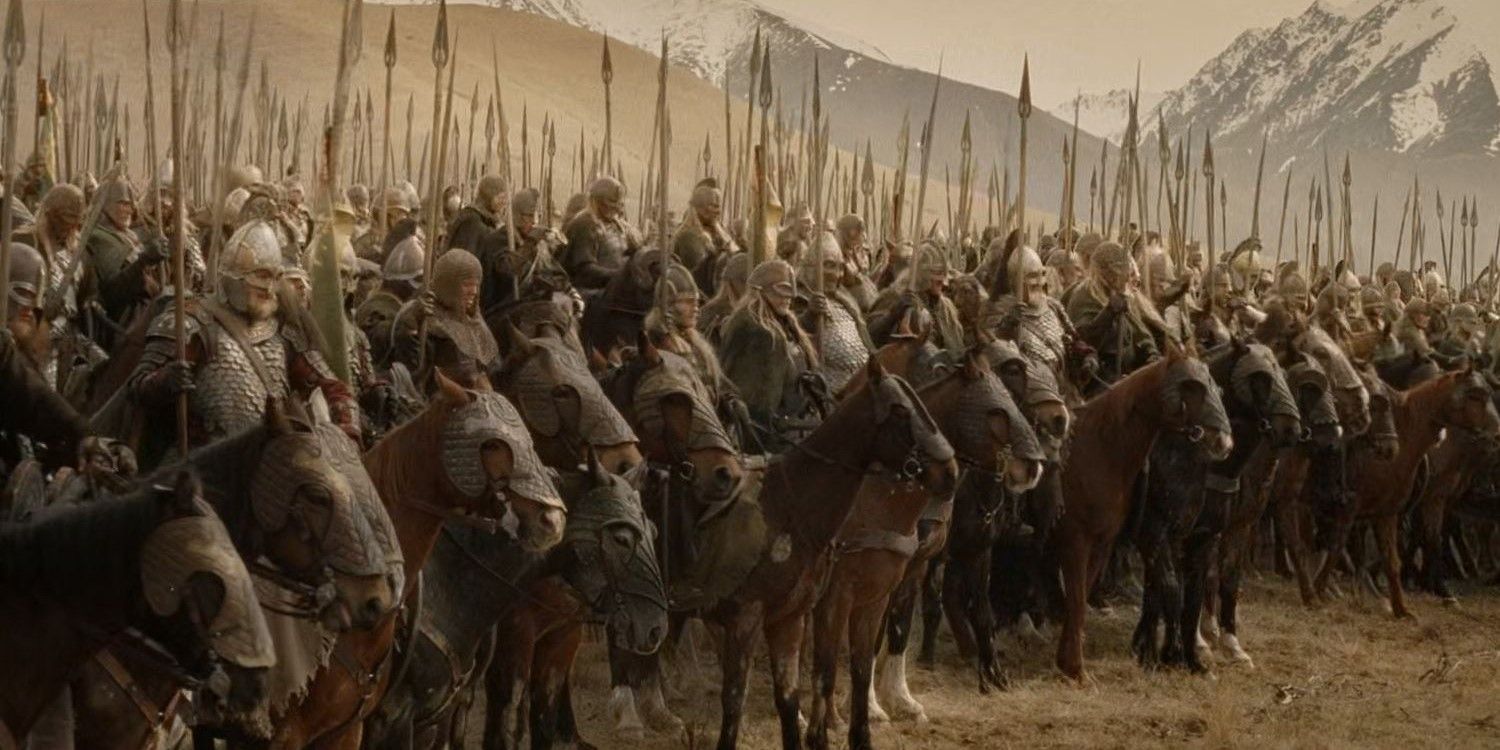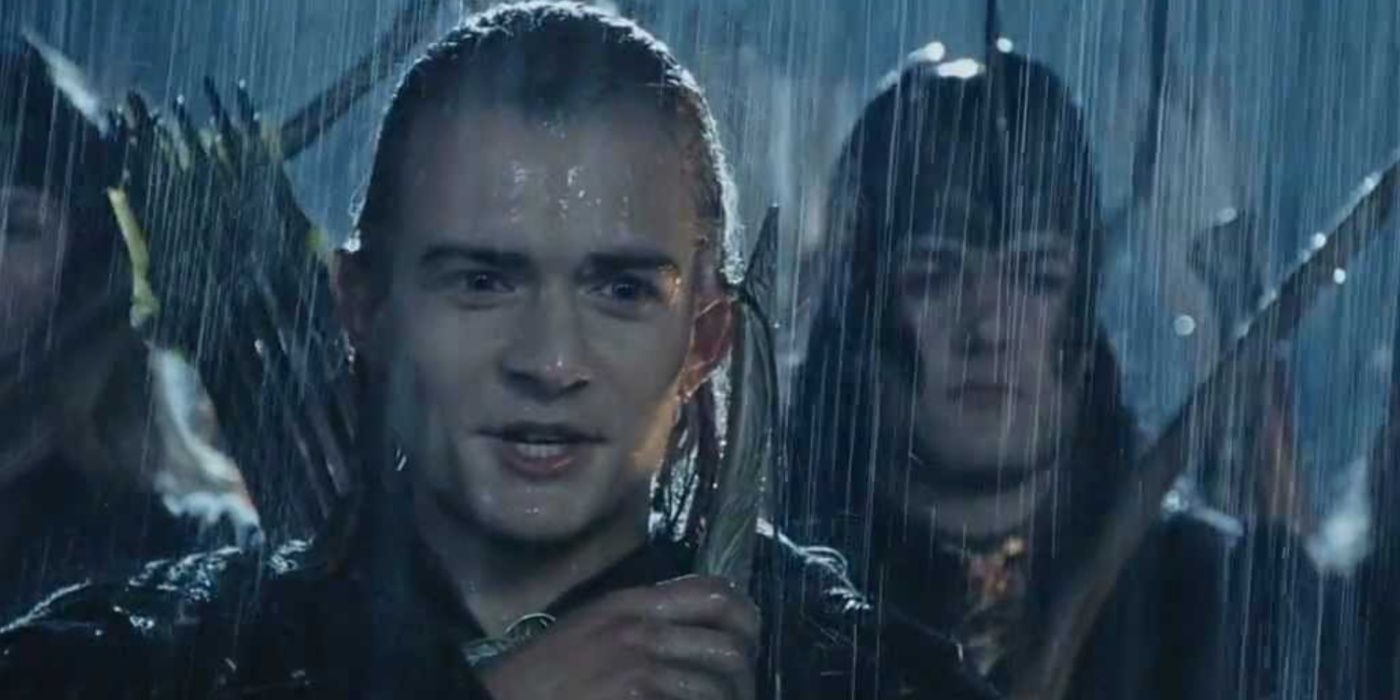Why The Elves Didn't Defend Gondor In Lord Of The Rings: The Return Of The King
Summary
- The Elves were absent in the Battle of Pelennor Fields in The Lord of the Rings due to fighting Sauron elsewhere.
- Jackson’s movies added Elves to big battles, but in Tolkien’s books, the Elves were fading from Middle-earth.
- Tolkien’s works focused more on Men, with Elves gradually leaving Middle-earth to be ruled by mortals.
Many forces united to defend Gondor in The Lord of the Rings: The Return of the King, but the Elves weren’t among them. Peter Jackson’s movie trilogy provided no answers in this regard since Elrond only showed up in the days leading up to the Battle at Pelennor Fields to give Aragorn Elendil’s sword. After this, these Elves were mysteriously absent despite having fought alongside the Men of Middle-earth in Jackson’s Lord of the Rings: The Two Towers. Of course, Tollkien’s books explain precisely why the Elves didn’t participate in such a significant battle.
The Battle of Pelennor Fields was one of the larger-scale battles of Jackson’s Lord of the Rings. It saw Sauron’s forces lay siege to Minas Tirith of Gondor, and had they succeeded in claiming the city, the Dark Lord would have all but officially conquered the Men of Middle-earth. It was an all-hands-on-deck moment, with Rohan and even The Lord of the Rings‘ Dead Men of Dunharrow getting in on the action. However, while Jackson’s movies made it seem like the Elves and Men were fighting side by side in the Third Age of Middle-earth, this wasn’t the case in Tolkien’s books.
Lord Of The Rings: Why Elves And Dwarves Hate Each Other
Everybody knows that Legolas and Gimli initially dislike each other in The Lord of the Rings. But what caused the tension between Elves and Dwarves?
The Elves Were Fighting Other Battles Against Sauron During The Return Of The King
The Lord Of The Rings Books Mention Where The Elves Were During The Battle Of Pelennor Fields
The Last Alliance of Elves and Men at the end of the Second Age of Middle-earth indeed was the last in Tolkien’s canon. The races worked together to take Sauron down, but by the time he had regained some power in the Third Age (during the events of The Lord of the Rings), Elves and Men weren’t in a place to offer each other much help. Sauron had stealthily gained influence in various kingdoms, which meant that while the Men were fighting to defend their homes, the Elves were doing the same elsewhere.
During the Battle of Pelennor Fields in The Lord of the Rings: The Return of the King, the Elves were engaged in battle in Lorien and a few of their other settlements. This meant that, aside from Legolas, there were no warriors to spare to assist the Men in defending Gondor. Tolkien’s book briefly mentioned this, but, in truth, it wasn’t so strange that the Elves were absent in this version of the story because this Middle-earth race hardly made any appearances after the Lord of the Rings: The Fellowship of the Ring book.
Peter Jackson’s The Two Towers Made The Elves’ Role Bigger Than The Books
Peter Jackson Made The Elves Join The Battle Of Helm’s Deep, Making It Seem Strange That They Didn’t Defend Gondor
Jackson made many changes to Tolkien’s works in his Lord of the Rings movies, among them the addition of the Elves in the Battle of Helm’s Deep in The Lord of the Rings: The Two Towers. In canon, Legolas was the only elf fighting with Rohan, just as he was the only elf defending Gondor in The Lord of the Rings: The Return of the King. As in the latter case, the Elves were too busy defending their own homes from Sauron’s (and Saruman’s) growing power and couldn’t spare their dwindling fighters to help the Men.
The Battle of Helm’s Deep wasn’t the only time Jackson added Elves where Tolkien had omitted them. Though Arwen and her story was prevalent throughout the Lord of the Rings movies, she was only briefly seen in the books and had no lines. Additionally, Elrond never brought Aragorn’s sword to him in the Lord of the Rings: The Return of the King book since the exiled king of Gondor had Narsil with him from day one and had it reforged as Andúril himself in Fellowship of the Rings. In all, Tolkien’s Lord of the Rings books hardly featured the Elves at all.
The Elves were featured only slightly more than Dwarves in Tolkien’s
Lord of the Rings
books, which were focused far more on the Men of Middle-earth than other races.
The Elves’ Time In Middle-earth Was Fading During Lord Of The Rings
The Fight Against Sauron Belonged To The Men In Middle-Earth’s Third Age
The Elves are highly important in Tolkien’s legendarium, but their prevalence in Middle-earth had waned during the events of The Lord of the Rings. As is mentioned in Jackson’s movies, by the time Frodo set out from the Shire, the Light of the Eldar had long since begun to fade. It was time for the Elves to migrate back to Valinor to live out their eternity, leaving Middle-earth to be ruled by Men. So, during the significant battles of The Lord of the Rings, few Elves were even left on the continent to offer a helping hand.
It was time for the Elves to migrate back to Valinor to live out their eternity, leaving Middle-earth to be ruled by Men.
Of course, it makes sense that Jackson would want to feature the Elves more heavily in his Lord of the Rings movies. The ethereal beings are a significant part of Middle-earth’s on-screen aesthetic as established by The Lord of the Rings: The Fellowship of the Ring, so it might have been disappointing to leave them behind after the first installment as Tolkien did. However, this does make it strange that, after adding the Elves to so many big moments, Jackson didn’t include them in the battle over Gondor in The Lord of the Rings: The Return of the King. Perhaps the director didn’t want to take such a victory away from Middle-earth’s mortals.

The Lord of the Rings: The Return of the King
The final installment of the Lord of the Rings trilogy, The Return of the King concludes the epic saga of the Fellowship’s quest to destroy the One Ring and put an end to Sauron’s reign of terror. As Frodo and Sam continue on their way to Mordor and Mount Doom, accompanied by Gollom, the rest of the Fellowship work to defend Minas Tirith from Sauron’s forces. The film’s ensemble cast includes Elijah Wood, Sean Astin, Ian McKellen, Vigo Mortensen, Orlando Bloom, John Rhys-Davies, Billy Boyd, and Dominic Monaghan.
- Release Date
- December 3, 2003
- Studio(s)
- New Line Cinema
- Distributor(s)
- New Line Cinema
- Cast
- Elijah Wood , Ian McKellen , Liv Tyler , Viggo Mortensen , Sean Astin , Cate Blanchett , John Rhys-Davies , Bernard Hill , Billy Boyd , Dominic Monaghan , Orlando Bloom , Hugo Weaving , Miranda Otto , David Wenham , Karl Urban , John Noble , Andy Serkis , Ian Holm , Sean Bean
- Runtime
- 210 Minutes
- Budget
- $94 million









